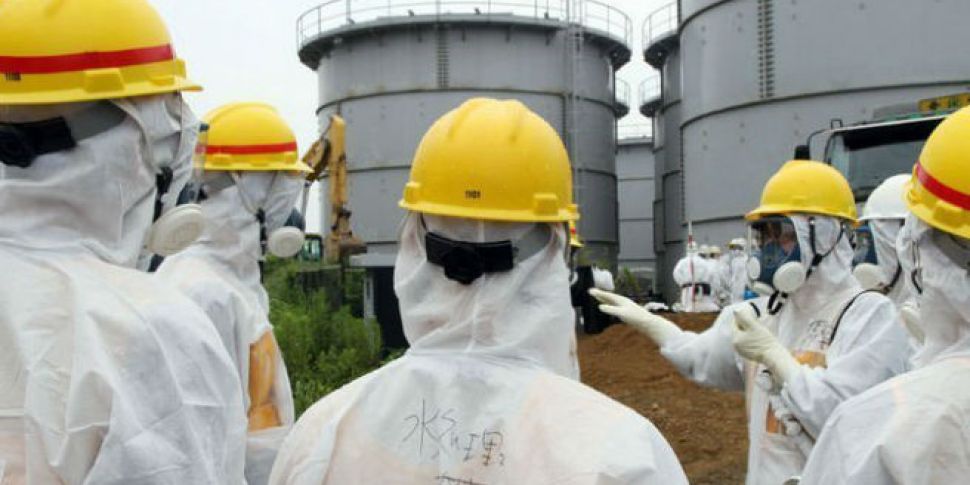A few days ago, Tokyo's governor Naoki Inose claimed that the city's bid for the 2020 Olympic Games would be unaffected by the fallout from the Fukushima nuclear disaster.
Yet, over two years on from the devastating tsunami and ensuing nuclear disaster at the Daichi plant, the situation seems to be showing no signs of abating.
Most of us have heard about the major leak of contaminated water into the Pacific Ocean that has been occurring over the past month. Indeed some 300 tonnes of water contaminated with radioactive material has been leaking out of damaged tanks according to Japan's Nuclear Authority. Today that organization raised the severity of the latest leak to "serious".
It is level 3 out of 7 on the International Nuclear and Radiological Event Scale (INES). But despite the fact that it is the highest crisis level since the reactors first went into meltdown, it seems to be business as usual for the Japanese government.
The country signed a $22 billion deal with the Turkish government to build nuclear plants in Turkey and the country's Prime Minister Shinzo Abe is pushing for the revival of nuclear power in order to obtain lower energy prices.
That's despite major problems that are both nuclear and social.

Alexis Dudden, a Professor of History at the University of Connecticut and a regular visitor to Japan spoke to me about events in the country and why the Japanese government nor the Tokyo Electrical Power Company (TEPCO) can be trusted regarding the nuclear issue.
Two years ago she told me that the way the Fukushima disaster was handled was beyond a cover-up and her opinion has not changed.
"There is a willful determination that [the government] can get away with it, that they can get away with tricking the masses about the extent of the problem. The former ambassador to Switzerland wrote a letter to the International Olympic Committee, saying that the government lied," says Dudden of a situation she believes is just as bad as Chernobyl in relation to its long-term impact.
Yet TEPCO has been getting the brunt of the blame - granted it is deserved. The government has described TEPCO's handling of the crisis as Whack-A-Mole but there is a danger that they could make the company a scapegoat, while washing their hands of responsibility in increasingly radioactive waters.

Alexis Dudden in Tochigi Prefecture, Japan
"They blamed TEPCO for the last two years but they haven't moved to disband the organization. Shares in TEPCO were doing well until recently so the people in charge profited in the interim. They are lying to the camera," says Dudden.
In the wake of the disaster, the government allayed concerns about long-term problems with radiation, yet there were signs that contamination of the soil and water in affected was worse than first feared.
Ken Beussler, a Senior Scientist at the Woods Hole Oceanographic Institution found that levels of radiocativity were alarmingly high in fish caught off the Japanese coast and the presence of nuclear reactor byproducts cesium-134 and cesium-137 in the ocean implies that cesium was still being released to the food chain.
Two years ago cows at 4,000 cattle farms in affected areas needed to be culled, despite initial claims that just six cows were affected.
This time last year, genetic mutations were found in three generations of butterflies near the crippled nuclear plant.
The peer-reviewed Journal of the Canadian Medical Association also accused the authorities of a “culture of coverup” and exposing people to “unconscionable” health risks six months after the disaster.
There are also concerns that groundwater is contaminated.

Radiation could be entering the food chain AP Photo/Mark Baker
And just in the past week or so, nuclear expert Mycle Schneider said that the current water leaks at Fukushima are much worse than the authorities have stated.
"The quantities of water they are dealing with are absolutely gigantic," he told the BBC.
It is all at a human cost with paranoia setting in among certain sectors of the population.
"There are 18-year-olds saying that they won't have children because of the danger of foetal deformations. Suicide rates are up. Many say that suicides should count as deaths from radiation. There is no mental health support. There are even documentaries showing little kids being brought to clinics to be told that they have thyroid cancer," says Dudden.
"At least 20 couples I know check that food does not come from affected areas. There have been other scandals. A 12-year-old girl purchased a personal Geiger counter after she was relocated from an affected area but it turned out that the new apartment where her family lived was made of material from a contaminated village and was measuring off the scale. This whole crisis has redefined people's perception of knowledge."
Coupled with the lack of mental health awareness, the government have done little to help those that are still affected and living in temporary shelters which are not free in most cases, with cases of elderly men dying from exposure of the non-radioactive type. That may not concern the government as much as it should, given that the foreign minister Taro Aso was quoted as saying that the Japan's increasingly elderly population is a drain on finances and they should "hurry up and die".
Temporary houses for displaced people
"Affected areas are depressing. There are roughly 200,000 people displaced because of radiation with 100,000 still living in uninhabitable areas," says Dudden who has visited Fukushima Prefecture recently, a region that also happened to have one of the poorest and oldest people in Japan before the disaster.
She believes that hundreds of thousands of people should have been evacuated from the affected area immediately after the disaster to reduce pain and suffering and it is a view backed up by the head of Japan's Medical Association who also happens to be from Fukushima.
He called for as many as 200,000 people to be relocated to safer areas of Japan in a dignified manner rather than the fallout that has occurred.
And yet they still speak of hosting an Olympics fewer than 200 miles from the damaged plant…









